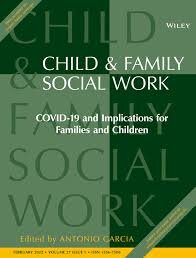Abstract
Foster children often encounter worldview differences between their foster family and their birth family, for example, when participating in religious activities and practices. Foster children not only have a right to continuity in upbringing but also consistency in worldview, culture and language. Good co-parenting relationships are important for their identity development. For these reasons, foster care workers are entrusted with the task of supporting the triadic relationship of the foster child, birth parents and foster parents in dealing with worldview differences.
Based on in-depth interviews with foster care workers (n = 16) six skills in dealing with worldview differences can be distinguished: (1) basic knowledge of worldviews and identity formation; (2) empathizing with the other; (3) inquisitiveness to discover what is essential for the other; (4) initiating worldview conversations and keeping them going; (5) fostering self-reflection in worldview; and (6) manoeuvring between and monitoring all interests.
It is helpful if birth parents are well-informed in advance about the impact of worldview differences and if foster care workers and foster parents are aware of the identity and developmental needs of foster children to explore the worldview of the foster family and the birth family.

